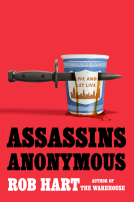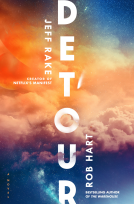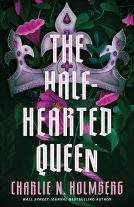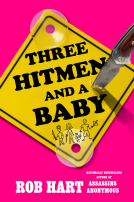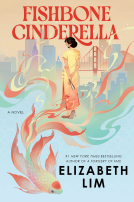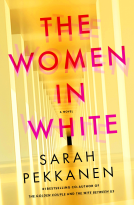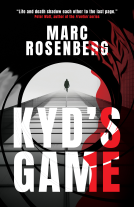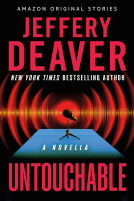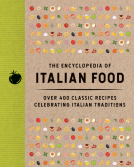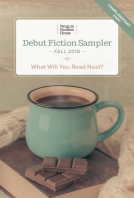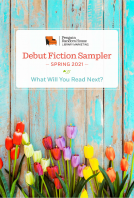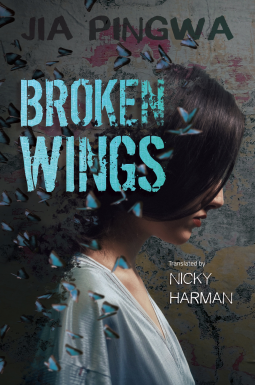
Broken Wings
by Jia Pingwa
This title was previously available on NetGalley and is now archived.
Send NetGalley books directly to your Kindle or Kindle app
1
To read on a Kindle or Kindle app, please add kindle@netgalley.com as an approved email address to receive files in your Amazon account. Click here for step-by-step instructions.
2
Also find your Kindle email address within your Amazon account, and enter it here.
Pub Date May 03 2019 | Archive Date Jun 17 2019
Alain Charles Asia Publishing | Sinoist Books
Talking about this book? Use #BrokenWings #NetGalley. More hashtag tips!
Description
Broken Wings tells the harrowing story of Butterfly, who is kidnapped and taken to a mountain village in which all the young women have left for the city. There, she is imprisoned and, later, raped in the cave home of the wifeless farmer who has bought her. These traumatic events and Butterfly's fading hopes of escape are described in her own voice, revealing a spirited young woman struggling to adjust to her new life.
Evening, I made my one hundred and seventy-eighth scratch on the cave wall.
Despite her humble rural beginnings, Butterfly regards herself as a sophisticated young woman. So, when offered a lucrative job in the city, she jumps at the chance.
But instead of being given work, she is trafficked and sold to Bright Black, a desperate man from a poor mountain village.
Trapped in Bright’s cave home with her new “husband”, she plans her escape… not so easily done in this isolated and remote village where she is watched day and night.
Will her tenacity and free spirit survive, or will she be broken?
Jia Pingwa (1952- ) stands with Mo Yan and Yu Hua as one of the biggest names in contemporary Chinese literature. A prolific producer of novels, short stories and essays, he has a huge following on the Chinese mainland, as well as in Hong Kong and Taiwan. An early English translation of his 1988 novel Turbulence by Howard Goldblatt won the Mobil Pegasus Prize for Literature. In 1997, his 1993 bestseller Ruined City was first published abroad in French as La Capitale déchue (Abandoned Capital), translated by Genevieve Imbot-Bichet. It was published in English translation in January 2016, again by Howard Goldblatt, this time as part of the Chinese Literature Today Book Series. Happy Dreams, translated by Nicky Harman, and The Lantern Bearer, translated by Carlos Rojas, were published in 2017.
Jia Pingwa's fiction focuses on the lives of common people, particularly in his home province of Shaanxi, and is well-known for being unafraid to explore the realm of the sexual. Ruined City was banned for many years for that same reason, and pirated copies sold on the street for several thousand yuan apiece. The novel was finally unbanned in 2009, one year after Jia won the Mao Dun Award for his 2005 novel Shaanxi Opera.
Available Editions
| EDITION | Ebook |
| ISBN | 9781910760550 |
| PRICE | £5.99 (GBP) |
Average rating from 26 members
Featured Reviews
 Neil G, Reviewer
Neil G, Reviewer
I almost wish that Jia Pingwa’s afterword in this novel was, instead, a foreword. In it, the author explains some of the cultural conditions in China and also talks about his writing process. Reading about both those topics actually changed (for the better) my view of the book and on reflection I would have liked to have read them before reading the story itself.
One of the features of the books from China that I have previously read has been their cultural context. All of them, I think, have tracked China through periods of huge social change, normally starting from The Great Leap Forward in 1960. This book is very different. Here we have a community and a way of life that is described in a way that suggests it has not changed for many, many years. And also that it is not keen to change any time soon. There are clues that suggest it is set in a fairly recent time (e.g. a mobile phone), but the lives of the people in the village seem ancient, filled with superstition and very little in the way of technology. The book shows us a side of China that is probably unknown to most people from the West, even those who visit China for themselves.
The story is based on a real life experience of one of the author’s friends’ daughters. Butterfly is an intelligent and ambitious young woman who moves to the city, is tricked and then kidnapped. She is sold to a man in a rural community and left to be his (unwilling) wife not knowing where she is and unable to contact anyone outside of the village. This is her story and it is at times very bleak. This practice of “bride buying” is talked about in an interview between the books’s translator and editor: http://www.asianbooksblog.com/2019/01.... In his afterword, the author writes:
Let me be clear: kidnapping of women and children is brutal and cruel and should be cracked down on. But
every time there is a crackdown, the traffickers are severely punished and the police are lauded for their
heroic rescues, no one mentions the fact that the cities have plundered wealth, labour power and women from
the villages. No one talks about the men left behind in the wastelands to wither like gourds on the frame (an
image used within the novel itself), flowering once, then dying fruitless. These are the last villages in China, and
the men are probably the last bachelors too.
One of the strange elements of Pingwa’s book (there are several more!) is the attitude of the villagers to their captive. There are times when Butterfly is treated brutally, but there are also many occasions when she is cared for. There is a character called great-grandad who appears to take her under his wing and nurture her. It becomes clear that the kidnappers have acted out of desperation rather than cruelty, even if some of what they do is barbaric.
In the afterword, Pingwa also discusses his writing technique and style:
There are many ways of writing a novel but nowadays it seems to be the fashion to write violent, extreme
narratives. Maybe that is what today’s readers want, but it does not suit me. I have always thought that my
writing was somehow akin to ink-wash paintings, paintings in words you might say.
This approach leads to a light touch from the author which I initially interpreted as slightly unemotional writing but which I soon realised was actually leaving the door open for the reader’s imagination. Pingwa does not spoon-feed his reader. So, as Butterfly struggles to keep herself emotionally and mentally stable, this is not described in great detail but is rather hinted at. There are times in the book when it is not clear whether what is happening is real or is a dream (you need to read it to decide for yourself which bit might be which; at times I thought maybe the whole thing is a dream of some kind, at other times I thought it was all real) and there are hints of magical realism in an otherwise straightforward story that leave the reader wondering again about the reality of what he/she is reading.
The only thing I found off-putting about the book is the names of the characters. Pingwa’s light touch combined with names that read almost like cartoon characters create a surreal atmosphere for what is a dark story. It took me a long time while reading this book to come to terms with the names. There were several places in the book where I wondered if being able to read it in the original Chinese would be an advantage. The names is one of those things, but also some of the word play in the snatches of poetry or songs or in some of great-grandad’s mystical sayings. I have the feeling that knowing Chinese would show some subtlety to what the author is doing with language, but I don’t know that for sure as I don’t know a single character of Chinese.
Overall, this was what I would describe as a 3.5 star read. I have rounded up to 4 stars in this case mainly because of the subject matter and the fact that I think the book deserves a wider readership as it shines a light into a dark area.
My thanks to ACA Publishing for an ARC via NetGalley.
For a book that delves into how violent humans can be, in this case-kidnapping young girls and selling them off in rural areas where they are chained and forced to serve as wives, I'll say that I do wish many more people would read it, with more heart and patience.
I believe we are now used to expression being all up in your face, telling it as it is, but Jia Pingwa's writing style leaves it up to the reader, and this can have two reactions; first you are either frustrated at (the awkward names of characters) and ascertaining the emotions of the characters and so you give up and click on the 2-star rating or simply say you "DNF," or second; you find yourself reading through to the end and wondering just how much circumstances broke Butterfly and why of all the names she had to get that, when it seemed like they always clipped her wings, degraded her---took her against her will and forced themselves on her?
So, it makes for an interesting approach to writing about human kidnapping and the trauma on families and how over the years China has grappled with this. It is also heartbreaking to know that this story was inspired by a true account and you only get a glimpse of this in the afterword.
Thank you Netgalley for the eARC.
 Kyra D, Reviewer
Kyra D, Reviewer
I liked this book. I especially loved the afterward at the end that explained how the book came to be and what it was based on. You really feel like you know Butterfly as the book goes on and understand why she does and is doing what she does.
I currently live in China and my students have told me about Jia Pingwa and his books. I had never had a chance to read a book by him until now. I would like to thank the publisher and Netgalley for giving me this ARC, but I would like to add that all opinions are my own.
I think that for someone who is unfamiliar with either Chinese literature or Chinese culture that they would have a lot of problems with this book. To start off the naming situation would be quite difficult for some foreigners, but the thing to remember that they are using a literal translation of their name in Chinese. Chinese people usually have a name that reflect some sort of quality or wish that their parents would like them to have. It would be like if they translated our names to be the literal meaning in a book so the main character would be "Blessed by God" and his girlfriend would be "Raven haired" or something like that.
Also, it was mentioned before and I agree that the author's note at the end should be a forward instead. It explains so much to the reader in terms of the translation, the work itself, and where the story came from. It will make the story clearer yet for the Western audience.
And in case you are mystified by some of the things that occur in this novel. My students have told me of similar traditions and events such as the ones in the novels, so the author is giving a fairly accurate portrayal of the life that people in these villages probably have.
All the things that happen to the main character, Butterfly, are absolutely heart breaking and the ending is going to confound most of its foreign audience where the emphasis on family and the next generation isn't as strong of a cultural factor as it is in China. I also feel a bit bad about saying this, but I would not recommend this as a first foray into Chinese literature. It would be better for someone who has already read a few novels and are familiar with some of the different things happening in the culture and the style of Chinese authors. However, this book does discuss a very serious subject that does need more light shed upon it.
I do hope that more people read this book, but I acknowledge that it will not be for everyone. I will be posting a review on my blog for this novel at a later date this week.
I knew this book will break my heart, but I was up to challenge. It was such a moving, breathtaking acting and story line that I would say - I found a gem. The book will make you reevaluate things and enjoy the plot that much more! I cried. I fell the character and the authors message. It was a moving book to read. Very memorable!
 Jayasree B, Reviewer
Jayasree B, Reviewer
Oh my God! this book is such a moving read.
And it opens up another world that one can't imagine exists even now. But the book brings about such a drastic depiction of this little village hidden away in some remote corner of the world and the practices and rituals of its people.
An absolutely well written, and well translated, book.
